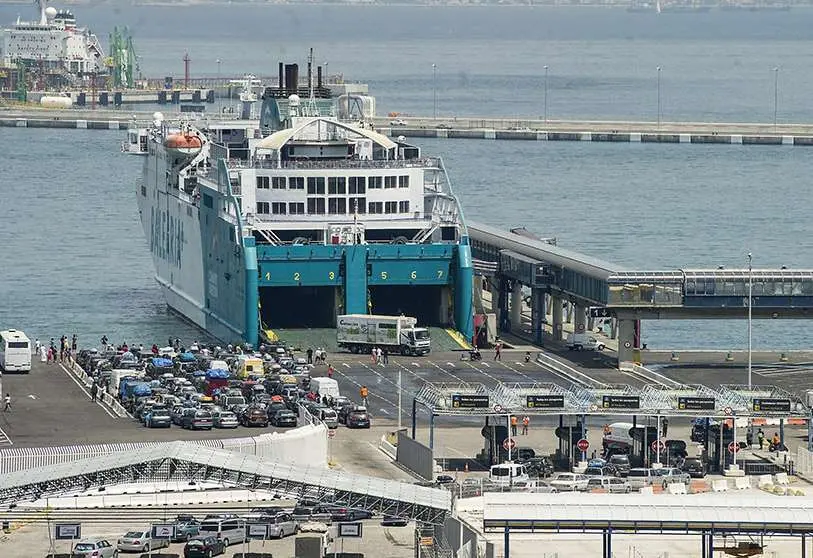Marruecos estudia incluir puertos portugueses en la Operación Paso del Estrecho

The diplomatic crisis between Morocco and Spain continues. On June 6, the government of Morocco announced that it will not accept transfers from Spanish ports in what is known as Operation Crossing the Strait (OPE), as happened last summer. The OPE, or as it is known in Morocco, Operation Marhaba (welcome in Arabic), usually begins in mid-June and ends in September. This transit of people is a boon for the Spanish economy, which for the second year in a row will be severely damaged.
According to data from 2019, the OPE had an overall balance of 3,243,045 people and 760,215 vehicles, including several destinations in Algeria. The operation involves 21,000 people and represents tens of millions of euros. The Spanish ports offering this service were: Algeciras, Tarifa, Alicante, Almeria, Malaga, Motril and Valencia, for the outward leg, and the ports for the return leg are usually Al Hoceima, Algiers, Ceuta, Ghazouet, Melilla, Mostaganem, Nador, Oran, Tangier-Med and Tangier-Ville.

Likewise, the companies that will be affected by Morocco's decision are Balearia, Transmediterránea, Intershiping, FSR and AML (Africa Morocco Link). While Morocco avoids using Spanish ports, it nevertheless keeps some maritime lines open from the ports of Marseilles (France) and Genoa (Italy), as well as the line between Sète (France) and Nador (north-east Morocco). The North African country argues that this is a purely sanitary decision.
Passengers on these ships must present a PCR test before boarding and carry out another on board which means that ships covering these routes must be equipped with laboratories that allow PCR tests to be carried out. The Alawi government argues that for short journeys, such as those between Spain and Morocco, it is not feasible to equip ships with laboratories as they would not have enough time to examine all passengers.

The Moroccan government's decision to suspend Operation Crossing the Strait, apart from being a blow to the south of the peninsula, which is largely fed by the flow of travellers during the summer season, was also a setback for the thousands of Moroccan migrants who were planning to return to their country for the summer season. The Moroccan government, in the face of widespread discontent, is considering extending the maritime lines to include a new one covering the route between the Portuguese port of Portimao (south) and the Moroccan port of Tangier Med, according to the official news agency MAP.
Once again, negotiations with the Spanish government have been avoided. The Alaouite kingdom prioritises the neighbouring country in an attempt to facilitate the return of Moroccan emigrants, and for the moment the inclusion of lines coming from Spanish ports is still not contemplated. If an agreement is reached with the Portuguese government, this line would join those to France and Italy already scheduled for this year, with an initial capacity of 20,000 passengers and 5,000 vehicles per week.

The Moroccan government expects the total capacity of these lines to be around 48,000 passengers and more than 15,000 vehicles per week. This means a total of approximately 650,000 passengers and 180,000 vehicles between 15 June and 15 September. Likewise, in order to reduce the cost of these journeys by boat, the government has imposed "reference prices" of 995 euros for a family of four for a round trip on long-distance routes and 450 euros for medium-distance routes.







